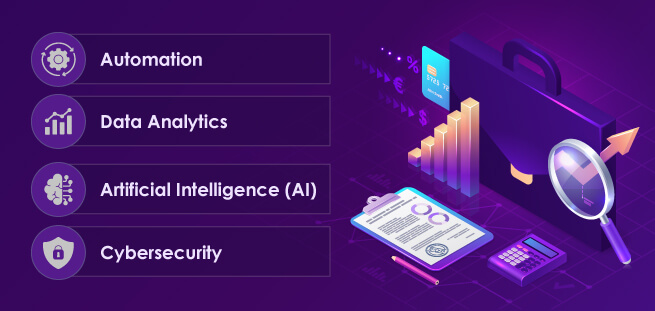Digital Transformation in the Finance Industry
Table of Contents
- Digital Transformation in the Finance Industry
- How Does Digital Transformation it Benefit Financial Services?
- Trends Reshaping the Financial Services
- How Can Tx help with Digital Transformation in Financial Services?
- Summary
In the quest to become market leaders, financial services industry (FSI) firms are investing heavily in new tech innovations to become digital, customer-centric enterprises. Especially digital transformation is becoming a necessity in today’s ever-evolving business environment. These days, customers demand a seamless, personalized banking experience while regulatory requirements and competitive pressures are increasing. The shift towards digitization and automation is changing the financial services structure, ushering in a new age of collaboration and efficiency.
With new tech innovations and evolving customer demands entering the market, finance companies must adopt robust digital transformation strategies. This would allow them to remain competitive, optimize their bottom line, and improve their business strategies. But what exactly is digital transformation in financial services? Why is it important? Do we have to move to new technologies like cloud, AI, and more? Will it improve data-driven decision-making and operational efficiency? These are some of the questions that will be answered in this blog and the trends reshaping the financial services landscape.
Digital Transformation in the Finance Industry

Digital transformation in financial services represents a fundamental shift reshaping how financial institutes operate, engage with customers, and deliver services. According to a survey, 75% of C-suite executives and senior leaders said they are positive about their transformation roadmap. Around 2/3rd of the respondents said they made progress in modernizing their core IT platforms. It shows businesses must leverage digital technologies to improve operational efficiency, drive innovation, and optimize CX. Digital transformation in the financial industry includes technologies like AI, ML, data analytics, IoT, RPA, and cloud computing.
It’s not about displacing existing systems but integrating new technologies to change business culture and processes and sync up with the evolving digital environment. Let’s take a look at some areas in detail:
Automation
Automation is one of the significant innovations affecting the finance industry. Complex processes and boring tasks that consume long hours of employees can be completed in minutes. This allows finance teams to focus on their roles’ creative and strategic sides. Finance institutes use RPA to handle daily tasks like data entry, compliance checks, and transaction processing. For example, JPMorgan has implemented RPA to handle loan agreement processing, saving thousands of hours at work each year.
Data Analytics
Smart analytics is improving financial decision-making. By leveraging advanced data analytics tools, businesses can gain insights into financial performance, trends, risks, and more. Accurate and up-to-date data would allow financial experts to make informed decisions that would contribute to the company’s success. For instance, Capital One is utilizing data analytics to provide personalized credit card recommendations to customers, improving overall CX.
Artificial Intelligence (AI)
One cannot deny that AI is the most exciting development of this century. AI-powered tools help analyze huge datasets and detect patterns that human analysts overlook. Chatbots and virtual assistants provide 24/7 customer support, handle inquiries, and offer financial advice. Businesses like Goldman Sachs utilize AI to analyze huge amounts of data for trading and investment purposes to facilitate better client returns.
Cybersecurity
With the rise in digital transactions, cybersecurity is now a critical factor under financial institutes’ radar. Protecting sensitive data from cyber threats is now a top priority. That is why banks are investing in advanced cybersecurity measures like 2FA, encryption, biometric verification, firewalls, etc. For instance, HSBC utilizes biometric authentication to ensure secure access to mobile banking services.
How Does Digital Transformation it Benefit Financial Services?
Digital transformation in financial services involves integrating digital technologies to allow businesses to meet customer’s needs, reduce operational costs, and improve efficiency. It would help them maintain a competitive edge in a rapidly evolving market. Following is some of the benefits of implementing digital transformation in financial services:



See What Clients Are Saying About Us!
4.7/5.0
Overall Rating
"Structured and reliable test automation approach! Tx helped us build QA from the ground up and consistently delivered on time and within budget."
See All Reviews(Chief Executive Officer, Software Industry)
Get a Consultation